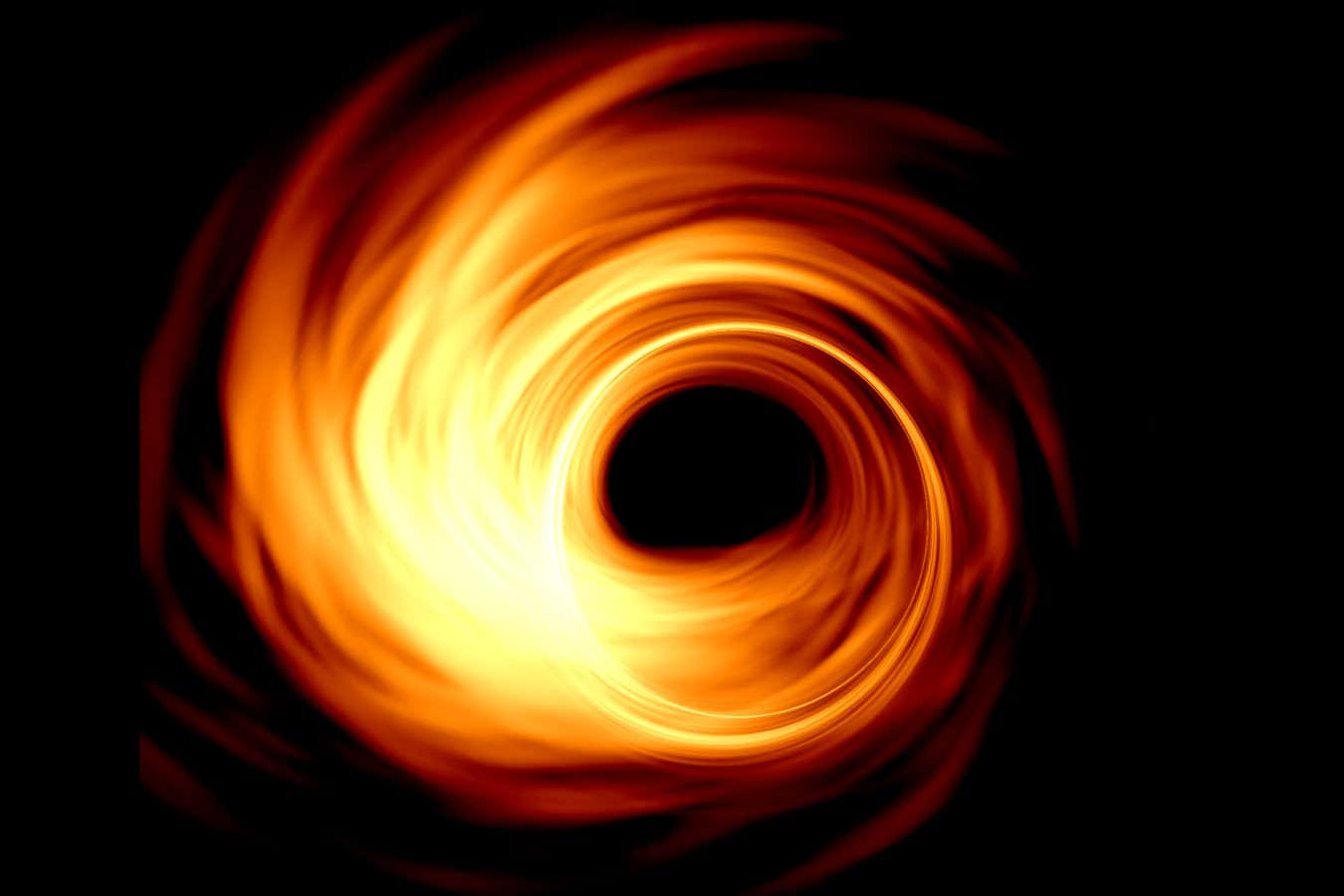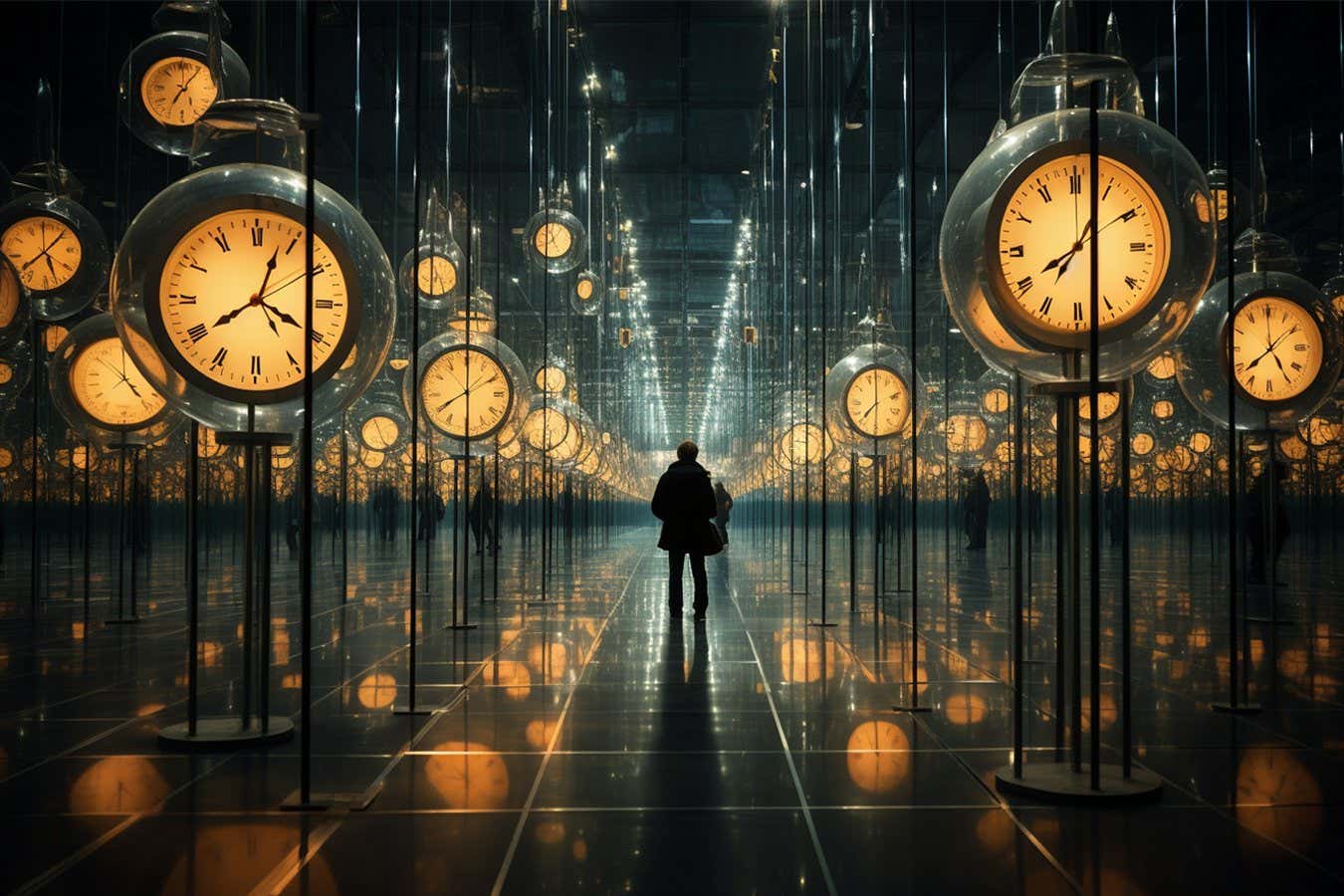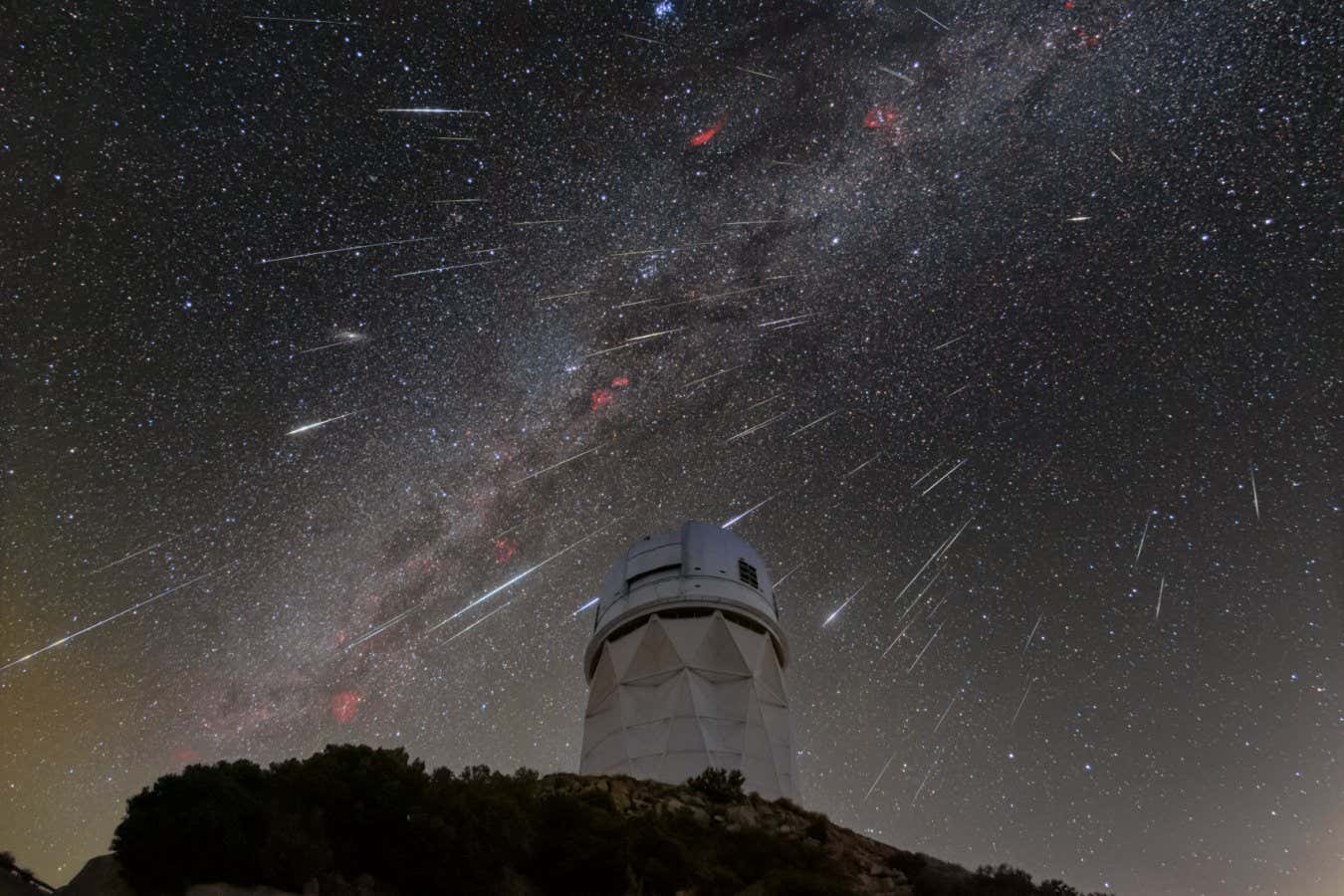A simulation of a black hole Hotaka Shiokawa/EHT
General relativity teaches us that reality is, in some sense, a matter of perspective. Consider how someone who is “falling” into a black hole sees something completely different to an observer trying to watch that someone cross the event horizon, a black hole’s edge.
The person actually making the transition beyond this point of no return won’t see anything unusual, although they will notice gravity is getting stronger and stronger. By contrast, the observer will find that no matter how long they watch, the person never seems to actually cross the event…



